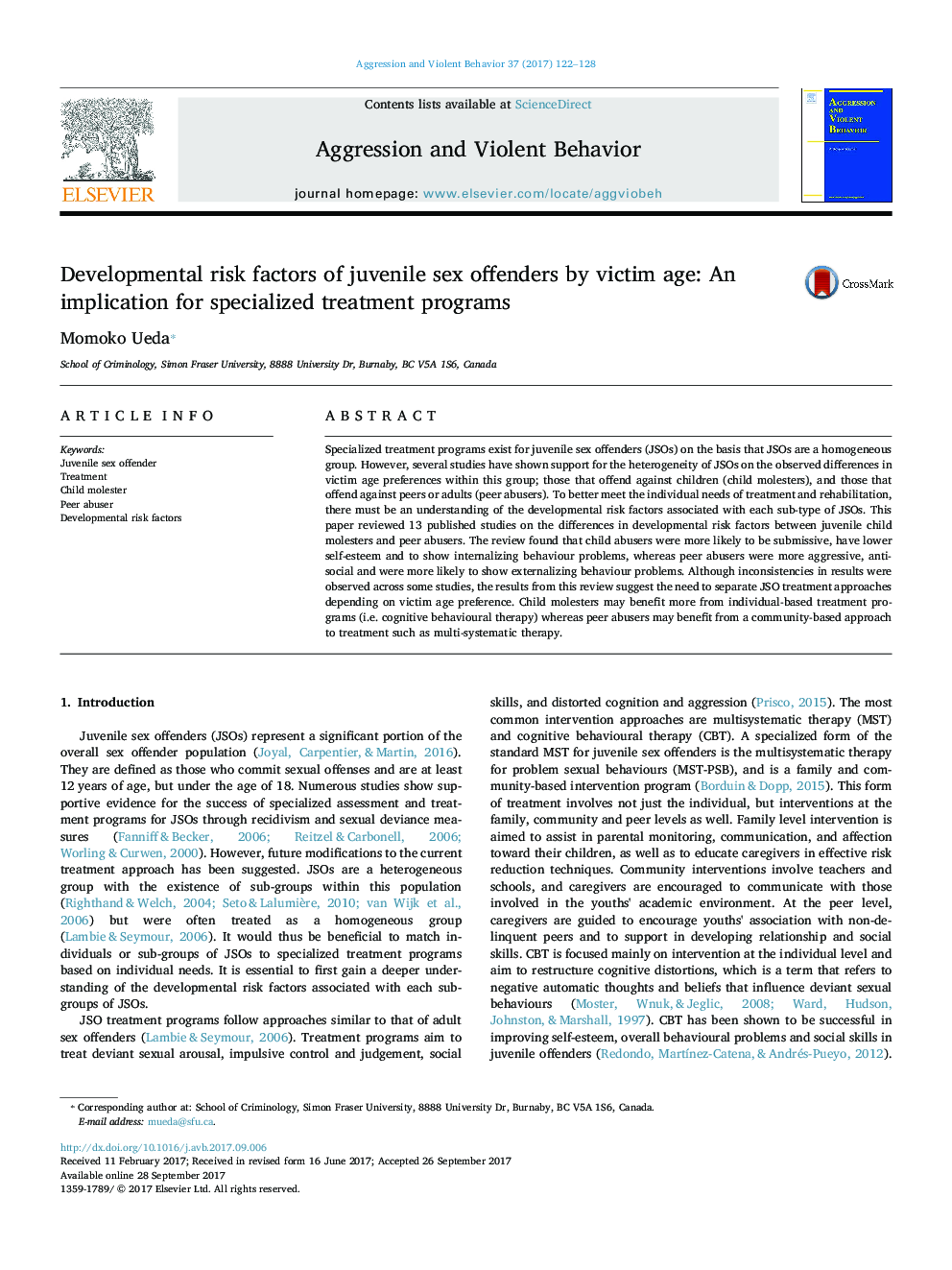| کد مقاله | کد نشریه | سال انتشار | مقاله انگلیسی | نسخه تمام متن |
|---|---|---|---|---|
| 4760044 | 1421884 | 2017 | 7 صفحه PDF | دانلود رایگان |
عنوان انگلیسی مقاله ISI
Developmental risk factors of juvenile sex offenders by victim age: An implication for specialized treatment programs
ترجمه فارسی عنوان
عوامل خطر رشدی نوجوانان مبتلا به سقط جنین: یک نشانه برای برنامه های درمان تخصصی
دانلود مقاله + سفارش ترجمه
دانلود مقاله ISI انگلیسی
رایگان برای ایرانیان
کلمات کلیدی
مجرم جنسی نوجوانان، رفتار، ترشح کودک، همسر جسور، عوامل خطر رشد،
موضوعات مرتبط
علوم پزشکی و سلامت
پزشکی و دندانپزشکی
پزشکی قانونی
چکیده انگلیسی
Specialized treatment programs exist for juvenile sex offenders (JSOs) on the basis that JSOs are a homogeneous group. However, several studies have shown support for the heterogeneity of JSOs on the observed differences in victim age preferences within this group; those that offend against children (child molesters), and those that offend against peers or adults (peer abusers). To better meet the individual needs of treatment and rehabilitation, there must be an understanding of the developmental risk factors associated with each sub-type of JSOs. This paper reviewed 13 published studies on the differences in developmental risk factors between juvenile child molesters and peer abusers. The review found that child abusers were more likely to be submissive, have lower self-esteem and to show internalizing behaviour problems, whereas peer abusers were more aggressive, antisocial and were more likely to show externalizing behaviour problems. Although inconsistencies in results were observed across some studies, the results from this review suggest the need to separate JSO treatment approaches depending on victim age preference. Child molesters may benefit more from individual-based treatment programs (i.e. cognitive behavioural therapy) whereas peer abusers may benefit from a community-based approach to treatment such as multi-systematic therapy.
ناشر
Database: Elsevier - ScienceDirect (ساینس دایرکت)
Journal: Aggression and Violent Behavior - Volume 37, November 2017, Pages 122-128
Journal: Aggression and Violent Behavior - Volume 37, November 2017, Pages 122-128
نویسندگان
Momoko Ueda,
